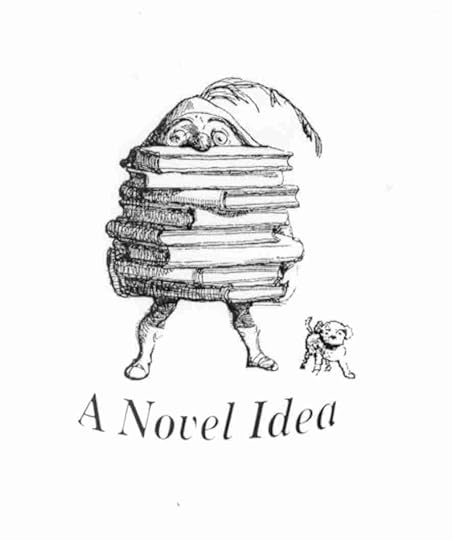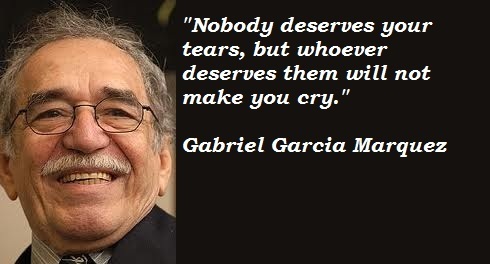Richard Harris's Blog, page 58
July 10, 2014
The 10 Best Nonfiction Books
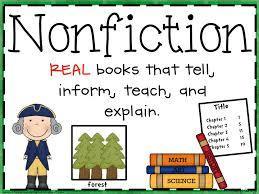
Choosing 10 works of fiction was hard, but choosing 10 nonfiction books is even more subjective. An author may do a wonderful job of writing about something, but if you’re not interested in the subject, it probably won’t do much to turn your crank. Some would disagree and say that good writing always inspires a reader, but in my humble opinion that simply isn’t true. For example, there isn’t a single business/management book out there you could pay me enough to read.
However, as with the fiction list I posted a few days ago, it’s interesting to see what others consider “seminal” nonfiction works. When I searched out the Modern Library again, I burst out laughing that Ayn Rand and L. Ron Hubbard could invade this list, too. Whatever. If I were a conspiracy theorist, I’d say Tom Cruise owns the rights to the Modern Library. However, the Readers’ List is scarier than the Top Gun factor. It really gives you a sense of the far right-wing, gun-toting, religiously zealous, 2nd Amendment-loving American nonfiction reader.
I hope my list is a touch more eclectic and may inspire some readers to go out and pick up a copy of one or more of these books. Although my list is not really a Top 10 – more like 10 books that have really made me think – I can’t say enough about Survival of the Sickest: The Surprising Connections Between Disease and Longevity. Anyway, let’s get to the lists and see what people are saying…
THE BOARD’S LIST
1. The Education of Henry Adams (Henry Adams)
2. The Varities of Religious Experience (William James)
3. Up from Slavery (Booker T. Washington)
4. A Room of One’s Own (Virginia Woolf)
5. Silent Spring (Rachel Carson)
6. Selected Essays, 1917-1932 (T.S. Eliot)
7. The Double Helix (James D. Watson)
8. Speak, Memory (Vladimir Nabokov)
9. The American Language (H.L. Mencken)
10. The General Theory of Employment, Interest, and Money (John Maynard Keynes)
THE READERS’ LIST
1. The Virtue of Selfishness (Ayn Rand)
2. Dianetics: The Modern Science of Mental Health (L. Ron Hubbard)
3. Objectivism: The Philosophy of Ayn Rand (Leonard Peikoff)
4. 101 Things to Do Til the Revolution (Claire Wolfe)
5. The God of the Machine (Isabel Paterson)
6. Ayn Rand: A Sense of Life (Michael Paxton)
7. The Ultimate Resource (Julain Simon)
8. Economics in One Lesson (Henry Hazlitt)
9. Send in the Waco Killers (Vin Suprynowicz)
10. More Guns, Less Crime (John R. Lott)
RICHARD’S LIST
1. Survival of the Sickest: The Surprising Connections Between Disease and Longevity (Dr. Sharon Moalem)
2. Guns, Germs and Steel: The Fates of Human Societies (Jared Diamond)
3. Man’s Search for Meaning (Viktor Frankl)
4. Paris 1919: Six Months That Changed the World (Margaret MacMillan)
5. A Brief History of Time: From the Big Bang to Black Holes (Stephen Hawking)
6. Death in the Afternoon (Ernest Hemingway)
7. Japan at War: An Oral History (Haruko Taya Cook, Theodore F. Cook)
8. What the Dog Saw and Other Adventures (Malcolm Gladwell)
9. Into Thin Air: A Personal Account of the Mt. Everest Disaster (Jon Krakauer)
10. The Guns of August (Barbara Tuchman)
Other titles almost on the list:
Dress Your Family in Corduroy and Denim (David Sedaris), No LOGO (Naomi Klein), Eats, Shoots & Leaves: The Zero Tolerance Approach to Punctuation (Lynne Truss), The Rape of Nanking (Iris Chang), In the Heart of the Sea: The Tragedy of the Whaleship Essex (Nathaniel Philbrick), Living Dangerously in Korea: The Western Experience, 1900-1950 (Donald N. Clark), A Short History of Nearly Everything (Bill Bryson), Hirohito and the Making of Modern Japan (Herbert Pix ), India: A Million Mutinies Now (V.S. Naipaul), The Korean War (Max Hastings), The Executioner’s Song (Norman Mailer), Hiroshima (John Hersey), The Last Honest Man: Mordecai Richler: An Oral Biography (Michael Posner)


July 6, 2014
The 10 Best Novels
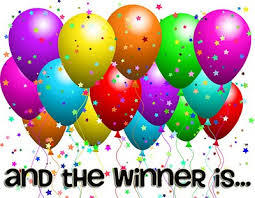
There is, of course, no right answer for this list. Art is subjective. Period. And as every voracious reader knows, the more you read, the harder it becomes to say which is your favourite novel, let alone which book is the “best novel.”
Still it’s kind of fun to compare notes with others on what they consider great literature. I’ve compiled three lists here for people to sink their literary fangs into. The Modern Library has two lists of the 100 Best Novels, the Board’s List and a Reader’s List. I’ll include both and then list my Top 10 favourite novels, along with a few footnotes for books that deserve worthy mention.
You might not agree with any of these lists, but if nothing else it’s food for thought and something you might refer to when looking for your next book to read.
So, without further ado, here we go…
THE BOARD’S LIST THE READER’S LIST
1. Ulysses 1. Atlas Shrugged
(James Joyce) (Ayn Rand)
2. The Great Gatsby 2. The Fountainhead
(F. Scott Fitzgerald) (Ayn Rand)
3. A Portrait of the Artist as a Young Man 3. Battlefield Earth
(James Joyce) (L. Ron Hubbard)
4. Lolita 4. The Lord of the Rings
(Vladamir Nabakov) (J.R.R. Tolkien)
5. Brave New World 5. To Kill a Mockingbird
(Aldous Huxley) (Harper Lee)
6. The Sound and the Fury 6. 1984
(William Faulkner) (George Orwell)
7. Catch-22 7. Anthem
(Joseph Heller) (Ayn Rand)
8. Darkness at Noon 8. We the Living
(Arthur Koestler) (Ayn Rand)
9. Sons and Lovers 9. Mission Earth
(D.H. Lawrence) (L. Ron Hubbard)
10. The Grapes of Wrath 10. Fear
(John Steinbeck) (L. Ron Hubbard)
As you can see, there is some serious bias going on in both lists. The “Modern” Library relishes classics (the most recent book on the list was published in 1955). Two Joyce novels in the Top 10? I love Joyce and he has had a profound effect on my writing, but even I wouldn’t put two Joyce novels so close together. As for the Reader’s List, apparently they are sci-fi/fantasy junkies. They also seem to lack diversity. Four Ayn Rand novels and three L. Ron Hubbard novels? Seriously? Do these people go to the library and look up only two names?
As for my own list, I’m going to call it my Top 10 Favourites and include a list of other books that almost made the cut.
RICHARD’S LIST
1. The English Patient (Michael Ondaatje)
2. War and Peace (Leo Tolstoy)
3. The Wind-up Bird Chronicle (Murakami Haruki)
4. The Master and Margarita (Mikhail Bulgakov)
5. Bel Canto (Ann Patchett)
6. Justine (the Alexandria Quartet, Lawrence Durrell)
7. A Confederacy of Dunces (John Kennedy Toole)
8. The Count of Monte Cristo (Alexandre Dumas)
9. The Naked and the Dead (Norman Mailer)
10. A Suitable Boy (Vikram Seth)
A few books I love which could easily have made the list include (in no particular order): Atlas Shrugged (Ayn Rand), In the Skin of a Lion (Michael Ondaatje), Barney’s Version (Mordecai Richler), The Poet (Yi Mun-yol), Madame Bovary (Gustave Flaubert), A Prayer for Owen Meany (John Irving), Rabbit at Rest (John Updike), The Quiet American (Graham Greene), Olive Kittridge (Elizabeth Stout), Three Junes (Julia Glass), Anna Karenina (Leo Tolstoy), A Wild Sheep Chase (Murakami Haruki), Freedom (Jonathan Franzen), a visit from the goon squad (Jennifer Egan), Brideshead Revisited (Evelyn Waugh), The Line of Beauty (Alan Hollinghurst), Cloud Atlas (David Mitchell), Ghostwritten (David Mitchell), Shogun (James Clavell), The Robber Bride (Margaret Atwood), The Razor’s Edge (Somerset Maugham), A Gesture Life (Chang-rae Lee), The End of the Affair (Graham Greene)
I’m probably forgetting a few books, so may update this over the coming days. For the next post I think I’ll try my hand at the Top 10 NON-FICTION BOOKS.


July 2, 2014
Online Sales Outstrip Bookstore Sales
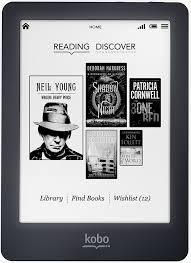
Per an article in engadget.com:
“Brick-and-mortar book stores have clearly been on the decline for a while — just look at Barnes & Noble’s rocky finances. However, there’s now some tangible evidence that the pendulum has swung in favor of internet-based sales. BookStats estimates that US publishers made more money from online orders and e-books in 2013 ($7.54 billion) than they did from old-fashioned physical retail ($7.12 billion). While the difference isn’t huge, it suggests that a large chunk of the American population is content with buying books that it hasn’t seen in person.
There is a bit of a dark cloud to this silver lining, at least for the booksellers. BookStats notes that e-book sales jumped about 10 percent to 512.7 million copies, but revenue was flat between 2012 and 2013; it may have been lower prices that triggered a surge in demand, not a renewed interest in going digital. With that said, researchers warn that their data doesn’t include books without ISBN numbers, so quite a few self-published e-books may have slipped through the cracks. Even with that wiggle room in the data, it’s evident that there’s a transition underway — you just shouldn’t expect to see the corner bookstore disappear overnight.”


June 30, 2014
AFS Gets Nod from Goodreads Heavyweight
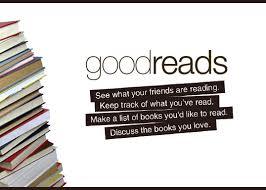
Aditi Saha, the #1 Top Reviewer at Goodreads, recently reached out to me and asked if she could read a copy of A Father’s Son . If I paid for the shipping to India, she promised to review it – and she has done precisely that. As per the beginning of her review:
As said by the author, Umberto Eco, “I believe that what we become depends on what our fathers teach us at odd moments, when they aren’t trying to teach us. We are formed by little scraps of wisdom.” , in the same way, a very talented author of this generation, Richard Harris, has tried to portray those true words of Umberto Eco in his book, A Father’s Son through his exquisite words. A Father’s Son is a tale of a son and his estranged father, and how they hold onto each other in the very difficult times of their lives.
She has been extremely kind in her review of my novel and an absolute joy to communicate with. She’s also the most voracious reader I think I’ve ever met!
I am extremely grateful for the chance to share my novel with someone on the other side of the planet. Click here to read the rest of the review.


May 31, 2014
How Many Books Are Published a Year?
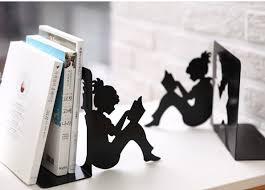
I was curious about this question, so did a little sleuthing. UNESCO estimates that 1,024,587 books were published “this year” around the world, but doesn’t specify the date. Its statistics from countries are drawn from all sorts of years.
Wikipedia says the U.S. led the charge in 2011 with 292,014 in new books and new editions. The Yanks have a lot of famous books, so new editions could total as much as 50% of the total in my opinion. Maybe more.
China, U.K., Russia, India, Germany, Japan, Spain, Turkey and France round out the Top 10 (S. Korea at No. 12, Canada at No. 20).
What’s interesting about the lists is what they define as “books.” Having lived in Korea for a long, long time, I saw that books come out every day from publishers and independent hagwon (cram school) presses. The number is staggering. I should know. I write some of them! But what constitutes a “book” by UNESCO or Wikipedia seems to be very different from the number of “bound editions of volumes of writings.” Literary prose? Non-fiction works? Great. But what does that really mean?
It brings to mind the question of what makes a book a “real book.” I don’t have the answer. But everyone who’s been to East Asia knows there are so many textbooks, dictionaries, reference guides, manuals and so on and so forth also knows that it’s hard to imagine they publish less “material” than any region of the world.
It also raises the question of self-publishing vs. traditional publishing. In North America the Big Five rules: Hachette, HarperCollins, Macmillan, Simon and Schuster, and Penguin Random House (yes, they merged in 2013…like Microsoft and Apple coming together…world domination!). But then you also have Bloomsbury, publisher of the not-so-famous J.K. Rowling and Margaret Atwood, and Canadian publishers McClelland & Stewart and House of Anansi, both of which have published Sir Knight the Rt. Hon. Michael Ondaatje (kind of love the guy…if you haven’t read In the Skin of a Lion or The English Patient you’re missing major pieces in your English reference library).
Everyone else gets lefts in the dust. Including self-publishing houses, which aren’t allowed to enter books into any single major literary contest except the Amazon Breakthrough Novel Award! (K, my book may be there in the Young Adult category, but this is NOT shameless promotion. NOT. Definitely NOT.)
In any event, there are a lot of books being published these days, especially in ebook format. That number will only continue to grow, and that’s a good thing in some ways. More books equals more variety; it also means fewer profits for all of us little scribes and inkhorns.
And then there’s online sellers versus brick-and-mortar stalwarts! But that’s for another post……….


May 10, 2014
The Redemption of Guilt
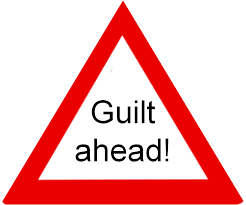
The nice thing about having no life is that you have lots of time to write. And I have just begun work on my fourth novel, The Redemption of Guilt.
I think of guilt in three ways: the criminal sense, whereby someone has broken the law; the ecclesiastical, whereby someone has sinned; and the innate, whereby someone feels remorse for a wrong they believe they have committed, without anyone having to tell them so.
This last sense of guilt is what spurred me to begin my latest literary effort. I want to tell stories of people and how they use the redemptive power of guilt to better their lives and the lives of others. For millennia the church has taught us to fear guilt, that it’s a source of shame, a one-way ticket to damnation.
I think it has a more restorative ability. And that’s the story I want to write.
Click here to read the first chapter from The Redemption of Guilt.


May 4, 2014
Self-Publishing 101
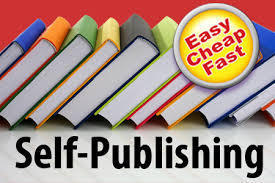
Just to be clear, self-publishing is neither easy, nor cheap, nor fast.
I’ve been waiting to start this post, which I’ve turned into a Page (link at the bottom) for all aspiring authors, because I feel I’m in a fairly unique situation. I’ve not only published with an established house (two books), but also self-published (one book). I’ve published non-fiction, fiction, short stories, and magazine & newspaper articles.
There are tons of sites out there that have lots of links to self-publishing houses and How to Succeed! You Can Do It! Click Here to Submit Your Soon-to-Be Bestseller!!! manuals. I’m not here for that. I’m here to point out the pitfalls so that you, the future published writer, can hopefully avoid some of them.
The short version for me goes like this:
Writing time of novel (including editing) - 7 years
Publication time – 3 months
Total cost - $3,700 {$1,300 (CreateSpace fee), $400 (bookmarks), $500 (launch party expenses), $1,500 (promotional/distribution/advertising fees, all done personally and not through CreateSpace)}
Level of contentment with the process - Mostly positive, but the IRS is my new sworn enemy (more on that in the Page for this Post)
Would I do it again? Probably not, but that’s because I’m trying to launch a career as a novelist with an agent and need to get some exposure before approaching one. If you’re only in it for the money or for the experience or for posterity’s sake, then by all means it could be a career for you! It’s a lot of work, though. It’s a lot of migraine-inducing experiences with people at so many levels, from the publishing house to the distributor to Kindle to Amazon to individual bookstores to local stores for promotional purposes to the American government to a graphic designer to a printer to your accountant to your stupid Russian Blue cat because he won’t get the hell off your desk before mistakenly hitting the ERASE ALL FOREVER key on your laptop, etc.
Click here to read the SELF-PUBLISHING PAGE in its entirety.


May 2, 2014
Is the Novel Really Dead?
“[In] the digital age, not only is the physical book in decline, but the very idea of ‘difficult’ reading is being challenged.”
While I would tend to agree with this statement on most days, I’m not sure I would go so far as to say the medium is dead. Like dead-as-a-doornail dead.
However, Will Self has penned a thought-provoking piece for The Guardian, and one thing he had to say about the novel as we know it today is the following:
“The form should have been laid to rest at about the time of Finnegans Wake, but in fact it has continued to stalk the corridors of our minds for a further three-quarters of a century. Many fine novels have been written during this period, but I would contend that these were, taking the long view, zombie novels, instances of an undead art form that yet wouldn’t lie down.”
One has to wonder where the novel (or storytelling to be more precise) goes from here. On the one hand, there are fewer publishers, bookstores and literary critics. On the other, there are more people writing and – while the content is debatable - reading. More readers and writers should be a good thing for the future of literature, I would think.
Read the full article for yourself here.


April 24, 2014
“No matter what, nobody can take away the dances you’ve already had.”
Because titans of literature will always be remembered.
Before he died on 17 April 2014 at the age of 87, Gabriel Garcia Marquez, Colombia’s illustrious Nobel Laureate for literature, had declared his retirement from public life. He had terminal cancer and sent this letter of farewell to friends and lovers of literature
From the man himself, a love letter to readers…
If God, for a second, forgot what I have become and granted me a little bit more of life, I would use it to the best of my ability.
I wouldn’t, possibly, say everything that is in my mind, but I would be more thoughtful of all I say.
I would give merit to things not for what they are worth, but for what they mean to express.
I would sleep little, I would dream more, because I know that for every minute that we close our eyes, we waste 60 seconds of light.
I would walk while others stop; I would awake while others sleep.
If God would give me a little bit more of life, I would dress in a simple manner, I would place myself in front of the sun, leaving not only my body, but my soul naked at its mercy.
To all men, I would say how mistaken they are when they think that they stop falling in love when they grow old, without knowing that they grow old when they stop falling in love.
I would give wings to children, but I would leave it to them to learn how to fly by themselves.
To old people I would say that death doesn’t arrive when they grow old, but with forgetfulness.
I have learned so much with you all, I have learned that everybody wants to live on top of the mountain, without knowing that true happiness is obtained in the journey taken and the form used to reach the top of the hill.
I have learned that when a new-born baby holds, with its little hand, his father’s finger, it has trapped him for the rest of his life.
I have learned that a man has the right and obligation to look down at another man, only when that man needs help to get up from the ground.
Say always what you feel, not what you think. If I knew that today is the last time that I am going to see you asleep, I would hug you with all my strength and I would pray to the Lord to let me be the guardian angel of your soul.
If I knew that these are the last moments to see you, I would say “I love you.”
There is always tomorrow, and life gives us another opportunity to do things right, but in case I am wrong, and today is all that is left to me, I would love to tell you how much I love you & that I will never forget you.
Tomorrow is never guaranteed to anyone, young or old. Today could be the last time to see your loved ones, which is why you mustn’t wait; do it today, in case tomorrow never arrives. I am sure you will be sorry you wasted the opportunity today to give a smile, a hug, a kiss, and that you were too busy to grant them their last wish.
Keep your loved ones near you; tell them in their ears and to their faces how much you need them and love them. Love them and treat them well; take your time to tell them “I am sorry,” “forgive me, “please,” “thank you,” and all those loving words you know.
Nobody will know you for your secret thought. Ask the Lord for wisdom and strength to express them.
Show your friends and loved ones how important they are to you.
Send this letter to those you love. If you don’t do it today . . . tomorrow will be like yesterday, and if you never do it, it doesn’t matter either, the moment to do it is now.
For you, with much love,
Your Friend,
Gabriel Garcia Marquez


April 22, 2014
New David Mitchell Novel: The Bone Clocks

There are great writers. And then there is David Mitchell. To quote his American editor, David Ebershoff: “I remember David Mitchell’s first reading in New York almost fifteen years ago. There were maybe fifteen or twenty people in the audience but it was clear to all of us David was a talent unlike any we had ever encountered before. I have watched him go from unknown British import to cult-favorite to global phenomenon.”
On September 9, 2014, his latest literary effort, The Bone Clocks, will hit bookshelves.
At the turn of the last century, when David published his first novel, Ghostwritten, I came across it randomly on eBay one day while searching through a Murakami Haruki feed of all places! I bought the book on a whim and have never looked back.
I later had the distinct honour of getting to know David in his pre-Cloud Atlas jettison to world fame and spent time with he and his family at their home in Ireland. He is, unequivocally, the definition of class, humility and etiquette. He’s also a pretty cool guy to shoot the shit with about books. You know, ’cause he’s read a couple in his time.
As per the Random House site, this is what they have to say about Mitchell’s upcoming novel: “The Bone Clocks is a stunning epic that follows Holly Sykes, who runs away from her home in Southwest England in 1984 and 60 years later is raising her granddaughter on the coast of Ireland, as almost everything about her world has changed forever. In between Holly and the people who love her move between the Swiss alps in 1991, war-torn Baghdad in 2004, and New York a decade in the future, where she joins a band of vigilantes in a supernatural war between a predatory cult of immortal soul-stealers. The novel is a monumental achievement that will thrill and entertain its readers while asking profound questions about mortality, legacy, and the future of the world.”
I couldn’t be happier for the acclaim he has received. David is one of the few authors I’ve come across who genuinely deserves all the praise readers and critics alike heap on him.



